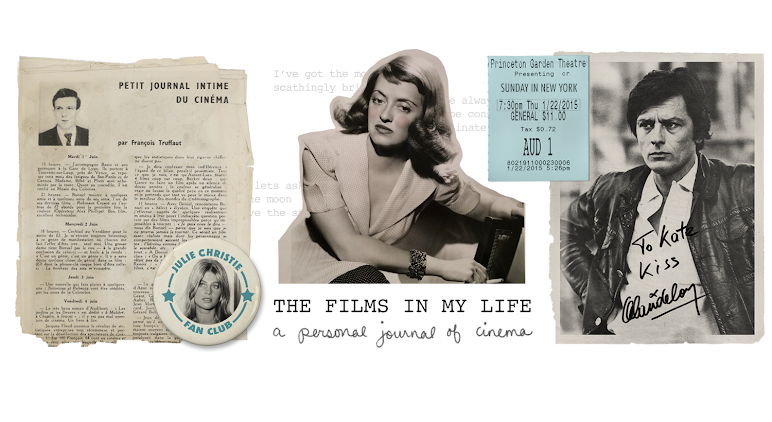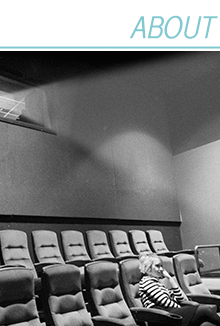by Matthew Coniam
of Movietone News
guest blogger
The Hollywood on Parade shorts, released by Paramount in the early thirties, are a feast of ephemeral delights in which Hollywood stars, in the interests of publicity, are frequently seen in bizarre or unexpected lights, activities and combinations. Within their ten minute episodes are to be found Anna May Wong reciting a Chinese poem, Bela Lugosi’s Dracula biting Betty Boop, Bob Bromley’s dancing puppets, Ginger Rogers and Jack Oakie dancing together in each other’s clothes and Jean Harlow demonstrating her golfing skills. The effect is somewhat like a moving Hollywood fan magazine, so it is only appropriate that one of the best instalments, produced in 1932, utilises that format literally, with each sequence emerging from the pages of a magazine.
One feature - headlined FILM PLAYER’S RARE COLLECTION: Roland Young Has Hobby (Can You Guess It?) - opens to reveal the actor surrounded by an enormous collection of stuffed and toy penguins. With his inimitably dry voice and patented absurd seriousness, he goes on to explain:
“I have what I consider a very unusual collection. And here it is. Penguins. Funny little birds found all the way from the South Pole to the Equator. There are none at the North Pole. I’ve collected these both in America and in Europe, and many of them have been sent to me by fans. Their chief value to mankind, as far as I can determine, is to appear in pictures made by explorers to the South Pole. This one was the star of a Zane Gray production. He died as the result of too many camera shots.”This all said with perfect solemnity and not a trace of knowingness as to its comic effect. Robert Benchley could have done no better.
This is the essence of Roland Young; that wonderfully mischievous, meek, physically contained character actor, whose mouth seems hardly to move when he talks, and who so excelled at bumbling upper class rakes, henpecked husbands, failed romantic adventurers and, finally, lovable older eccentrics before signing out peacefully in 1953 – not exactly at an untimely age to die but, from the point of view of the greedy film fan, a somewhat stingily prompt one.
He’s English of course, quintessentially so, but very much an American star; he came to the States early, in 1912, just four years after becoming an actor, and stayed, a US citizen by the time of World War I, in which he fought. And when he returned to Britain for The Man Who Could Work Miracles (1937) it didn’t feel like a homecoming so much as a bit of Hollywood paying a call. Miracles was, I think, his only headlining vehicle, though not his only lead: he was the eponymous star of those three superb Topper films, of course, though inexcusably denied top-billing in them all. For the most part he was a character actor, a supporter, and – for me – the best in the business.
Not that he wasn’t good enough to dominate a film as star. But whatever his role he shines without ever seeking to upstage or overbalance an ensemble. Subtlety; that he had in abundance; perfect timing, and an elegance and precision to everything he did that put him uppermost in the ranks of that roster of great comic support acts in which Paramount and MGM once abounded, and which the world has never seen the like of again. They’re all great – Butterworth, Ruggles, Benchley et al – but Young, I think, is the most unpredictable.
Corey Ford in ‘The Time of Laughter’, his wonderful memoir of the great twenties and thirties humorists from which I quote endlessly on my Marx Brothers blog, informs me that “he was the Broadway star of Shaw’s The Devil’s Disciple and Beggar on Horseback by Kaufman and Connelly, a talented artist whose sketches had appeared in Life and Vanity Fair, and a raconteur and sly wit.” (Once, when the two were discussing his famous appearance as Uriah Heap in David Copperfield, Ford asked him whatever became of Freddie Bartholomew. Young replied, “Basil Rathbone ate him.”)
I will not be content until I have seen every performance he ever gave. I don’t remember the titles of all the films he’s in I haven’t seen, but I know, and savour, his character names: Hillary Hume, Barry Keith-Trimble, Linkhorne 'Link' Gibson, Reggie Buckley Candysshe (Marquis of Buckminster)…
I love him as Uncle Willie in The Philadelphia Story because… because who could not love him as Uncle Willie in The Philadelphia Story? Ditto as Cosmo Topper, the film series that perhaps best exploited his particular gift for playing characters that find themselves in embarrassing situations they are not quite inventive enough to successfully talk their way out of. (Of the three, I actually prefer the last, Topper Returns, for its cast, its thrills, and the scene with Eddie Anderson and the seal.)
I love him, fairly late in his career, as William Blore, the crass private detective (from my home town of Plymouth) in René Clair’s And Then There Were None (1945), without rival the greatest murder mystery ever filmed. Blore, who spends most of the film jumping to wrong conclusions and chasing wild geese finally solves the mystery the second he is murdered. “I get it!” he shouts in triumph – just as the unseen killer topples a stone urn on his head from the floor above.
I love him playing straight – or at least, as straight as is possible for Roland Young to play eccentric Scotland Yard detective Lord Monte Montague - in his first talkie The Unholy Night (1929), one of several fascinating early talkies directed by Lionel Barrymore.
I adore him as Gerald, the ineffectual adulterer of Frank Tashlin’s glorious This Is The Night (1933), my favourite ersatz-Lubitsch comedy, with Thelma Todd as his intended amour and a vengeful Cary Grant in his feature debut as her Olympic javelin-throwing husband. The ever-deepening pool of comic desperation into which he plunges as he attempts to simultaneously convince that Grant that he is not having an affair with Todd and that he is married to Lily Damita, whom he has just hired expressly for the purpose of impersonating his wife, show his mastery of sophisticated farce.
But most of all I love him as Jimmy in DeMille’s Madam Satan. Every line and gesture and moment of his performance here is flawless. I love the door slamming bedroom antics with Lillian Roth, his MC turn at the climactic zeppelin party (sorry, I’m making no concessions to anyone lazy enough to have never seen this greatest of all films), I love him taking a shower fully-clothed with Reginald Denny, likewise-attired, I love the bit where the two read of their latest drunken exploits in the paper and a close-up of the newsprint, describing Young’s character as a ‘prominent member of the city’s younger set’ cuts to a glorious close-up of that beautiful balding, middle-aged face. This is the younger set? Oh, take me back to 1930!
One line in particular stands out. Young is again trying to cover-up an extra-marital affair, though not his own this time, by pretending that Denny’s girlfriend is actually his wife. “What’s her first name?” asks Denny’s wife (Kay Johnson.) “Her first name?” Young repeats, then: “Her first name?”
All the character is doing is obfuscating to play for time, so most actors, I think, would have stressed ‘first’ rather than ‘name’. By doing the opposite, Young seems to be implying not that the question is irrational per se, but that in the context of all the other first things about her Johnson might reasonably be expected to take an interest in, there is something eccentric or unexpected in her wanting to know her first name.
It’s difficult to describe exactly, and harder still to describe why it’s funny, and I sense I’ve not made all that good a job of either. But that’s Roland Young. He really wasn’t like anyone else, and you have to see it to get it: the mark of true and irreplaceable originality.



















3 comments:
Thanks, Kate - love the pic!
Really super post & artwork! Roland Young is without a doubt one of the better actors of the 20th century!
Great artwork and great article. Kudos to both Kate and Matthew.
Matthew, I have found that Roland Young always makes a picture more enjoyable. I really liked him, for example, in 'Ruggles of Red Gap.' The scene where he's falling in love with Leila Hyams and can't quite get the hang of Pretty Baby is at once funny and endearing.
Sorry I'm late to the party, but I wanted to say how much I enjoyed this piece.
Post a Comment